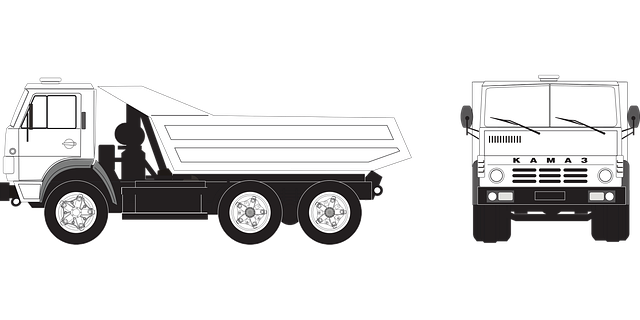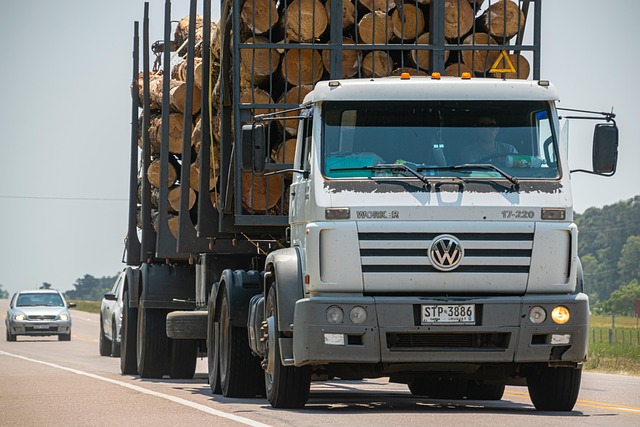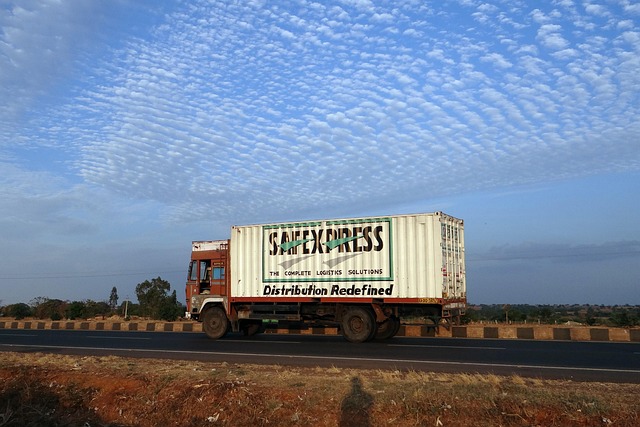Looking to register your car in California? Navigating the process can seem daunting, but we’ve got you covered. This guide breaks down the essential steps, from understanding key requirements for car registration in California to performing crucial VIN verification. Learn how to gather necessary documents, complete the registration process online or in-person, pay fees, and receive your license plate. Master these steps, and you’ll be cruising smoothly on California’s roads in no time. Remember, a successful VIN check is a key step towards seamless car registration!
- Understand the Requirements for Car Registration in California
- Gather Necessary Documents for VIN Verification
- Perform Vehicle Identification Number (VIN) Check
- Complete the Registration Process Online or In-Person
- Pay Registration Fees and Receive Your License Plate
Understand the Requirements for Car Registration in California

Before you start the registration process, it’s crucial to understand what California demands for car registration. The state requires a comprehensive set of documents and verifications to ensure every vehicle on its roads is safe and legally owned. One key component of this process is the Vehicle Identification Number (VIN) verification. This unique 17-character code serves as the identifier for your car, facilitating accurate record-keeping and ensuring only legitimate vehicles are registered.
For a seamless registration experience in California, consider opting for a mobile VIN inspection or verification service. These services bring the necessary expertise directly to you, saving time and effort compared to traditional methods. By providing a valid and accurate VIN, along with the required documents, you’ll be well on your way to securing your car’s registration in no time.
Gather Necessary Documents for VIN Verification

Before heading to the California Department of Motor Vehicles (DMV) or an authorized agent, ensure you have all the required documents for a successful VIN verification process. This includes your vehicle’s registration certificate, proof of insurance, and the most crucial document – the Vehicle Identification Number (VIN). The VIN is a unique 17-character code that identifies your car, and it’s essential for the inspection process.
Additionally, you might need to provide a valid driver’s license or state ID card, along with any other documentation related to previous ownership if applicable. For a smoother experience, consider conducting a mobile VIN inspection or verification service, which can save time and effort by allowing an expert to remotely inspect your vehicle’s details and ensure everything is in order before you visit the DMV.
Perform Vehicle Identification Number (VIN) Check

Before you begin the registration process, it’s crucial to perform a Vehicle Identification Number (VIN) check. This step is essential for verifying the vehicle’s authenticity and history, ensuring that it meets all legal requirements in California. A VIN inspection helps to prevent fraud and ensures that the car you’re registering is safe and roadworthy.
Consider using a mobile vin inspection service or a trusted vin verifier to simplify this process. These professionals can perform a thorough vin verification right at your location, saving you time and effort. They’ll cross-reference your vehicle’s VIN with various databases to uncover any hidden issues, previous accidents, or outstanding recalls, providing you with peace of mind before submitting your registration documents.
Complete the Registration Process Online or In-Person

You have the option to complete your California car registration either online or in-person at a DMV field office. Both methods involve gathering essential documents and providing accurate information, but going digital offers several advantages. Online registration is swift and convenient, allowing you to skip waiting times and even perform a mobile VIN inspection for added peace of mind. Simply enter your vehicle’s details and upload necessary paperwork, including proof of insurance and ownership.
In-person registration, on the other hand, requires you to present your documents in person at a DMV office. This process is ideal if you have specific questions or require assistance with any part of the registration, such as during a VIN inspection. Ensure that all data is accurate to avoid delays or issues, and always verify your vehicle’s unique identifier (VIN) for consistency throughout the registration journey.
Pay Registration Fees and Receive Your License Plate

After completing your vehicle’s registration application, it’s time to settle the fees. California has specific requirements for car registration costs, which vary based on vehicle type and age. You’ll need to pay a base fee along with any applicable emissions or tax charges. The process is typically completed online or at a DMV office, where you can make the payment using various methods, such as cash, credit card, or debit card. Once your fees are paid, you’ll receive your license plate, which is a crucial step in legalizing your vehicle for California roads.
Obtaining license plates marks the final stage of registration and ensures that your car meets all legal standards. This process involves the DMV assigning unique license plate numbers and issuing physical plates that must be displayed on your vehicle at all times. With your new license plates, you can now legally drive your car on California’s highways and streets, knowing that all administrative requirements have been met, including a successful vin verification using a mobile vin inspection or verifier to confirm the vehicle’s authenticity.
Registering a car in California is a straightforward process, but understanding the requirements and gathering the necessary documents are key. After performing a Vehicle Identification Number (VIN) check, which ensures your vehicle’s authenticity, you can complete the registration online or in-person. Once approved, you’ll pay the required fees and receive your license plate, marking the successful conclusion of your car registration journey. Remember to keep your documents up-to-date for seamless future interactions with California’s Department of Motor Vehicles (DMV).



